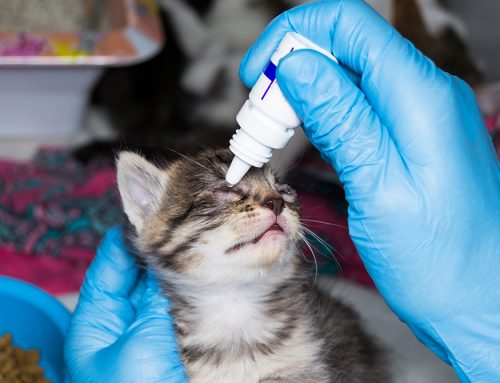Overview: Allergic Dermatitis is a common condition in both dogs and cats, characterized by inflammation of the skin due to an allergic reaction. This condition can cause significant discomfort for your pet, leading to persistent itching, scratching, and other related symptoms.
Causes of Allergic Dermatitis:
- Flea Allergic Dermatitis (FAD): This is the most common cause of allergic reactions in pets. Even a single flea bite can cause a severe reaction in a pet that is allergic to flea saliva.
- Food Allergies: Some pets may develop allergic reactions to specific ingredients in their diet, such as beef, chicken, dairy, or grains.
- Environmental Allergens: Pollen, mold spores, dust mites, and other environmental factors can trigger allergic reactions in pets, particularly during certain seasons.
- Contact Allergens: Certain materials like shampoos, cleaning products, or even grass can cause a contact allergy in pets.
Symptoms of Allergic Dermatitis:
- Excessive itching and scratching: Pets will often scratch or bite at their skin, sometimes causing redness or sores.
- Hair loss: In some cases, hair loss may occur in areas where pets frequently scratch or lick.
- Red or inflamed skin: Look for areas of red, inflamed, or swollen skin, particularly around the ears, paws, and belly.
- Frequent ear infections: Recurrent ear infections can be a sign of underlying allergies.
- Hot spots: These are areas of the skin that become raw and inflamed due to persistent licking or scratching.
Diagnosis: Diagnosing allergic dermatitis can be complex and often involves ruling out other potential causes of itching and skin irritation. A veterinarian may perform the following:
- Physical examination: To identify areas of irritation and possible secondary infections.
- Flea control trial: To determine if fleas are the underlying cause.
- Elimination diet: A trial diet may be recommended to identify food allergies.
- Allergy testing: Blood tests or skin tests may be performed to identify environmental allergens.
Treatment Options:
- Flea Control: Ensuring your pet is on a consistent flea prevention regimen is crucial, especially if they have a known flea allergy.
- Dietary Management: For pets with food allergies, a special diet that avoids allergens may be prescribed.
- Medications:
- Antihistamines: To reduce itching and inflammation.
- Corticosteroids: Used for short-term relief of severe itching.
- Immunotherapy: Allergy shots or oral drops can be used for long-term management of environmental allergies.
- Topical Treatments: Medicated shampoos and creams can help soothe irritated skin and manage symptoms.
- Environmental Management: Reducing your pet’s exposure to environmental allergens, such as keeping your home clean and using air purifiers, can help manage symptoms.
Prevention Tips:
- Regular Flea Prevention: Use veterinarian-recommended flea preventatives year-round.
- Balanced Diet: Feed your pet a balanced, hypoallergenic diet if food allergies are suspected.
- Frequent Grooming: Regular bathing and grooming can help remove allergens from your pet’s coat and skin.
- Environmental Control: Minimize your pet’s exposure to known environmental allergens by keeping your home clean and using air filters.
When to See a Veterinarian: If you notice your pet exhibiting signs of allergic dermatitis, it’s important to consult with a veterinarian as soon as possible. Early diagnosis and treatment can prevent the condition from worsening and improve your pet’s quality of life.
Contact Us: If you suspect your pet may be suffering from allergic dermatitis, please visit Mission Veterinary Clinic. Our experienced team is here to help diagnose the issue and develop a tailored treatment plan to keep your pet happy and healthy.
For more information or to schedule a consultation, please call us at 818-363-8143 or visit us at our clinic during our operating hours. We are here to ensure your pet’s well-being every step of the way.










Leave A Comment